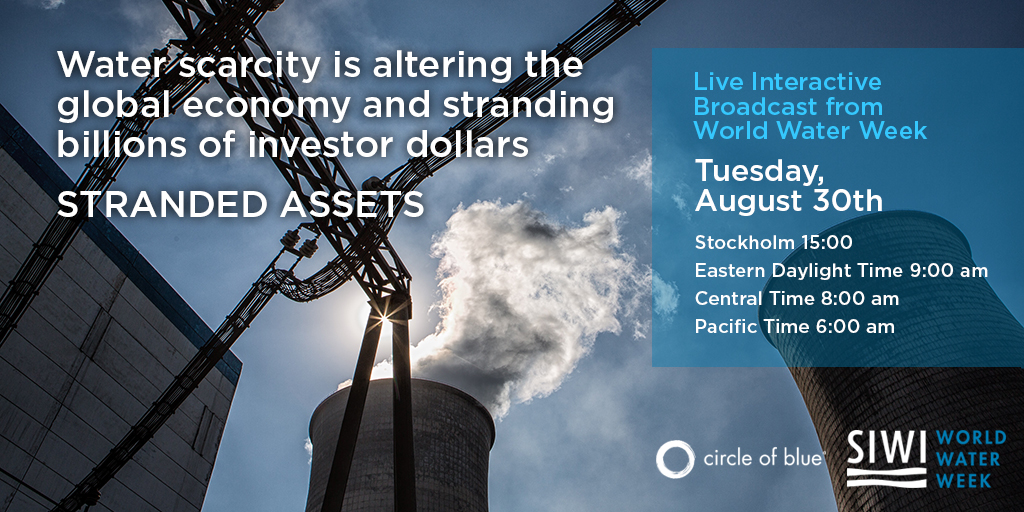The Stream, August 30: Groundwater Contaminated In India, Pakistan, Bangladesh, and Nepal
The Global Rundown
Poor water quality means the majority of groundwater in the basin stretching across northern India, Pakistan, Bangladesh, and Nepal is unfit for human use. The period in time since humans began significantly altering the planet should be officially recognized as a new geological epoch, called the Anthropocene, according to an expert working group. Climate change may not cause as sharp an increase in drought as previously thought, and La Nina may not provide the rainfall farmers in South Africa are counting on to relieve a severe drought. A new tax law in China could reduce the amount companies pay for water, air, and soil pollution if they cut carbon emissions. Coca-Cola announced that, for the first time, it released more water back into the environment than it used to make its beverages last year. A new art exhibit hopes to raise awareness about rising global sea levels.
“Being able to pinpoint an interval of time is saying something about how we have had an incredible impact on the environment of our planet. The concept of the Anthropocene manages to pull all these ideas of environmental change together.” –Colin Waters, principal geologist at the British Geological Survey and secretary of the Working Group on the Anthropocene, on the the expert group’s recommendation that a new geological epoch be officially recognized by the scientific community. The new epoch, called the Anthropocene, started in 1950 and marks the time when human activities significantly altered global functioning. (Guardian)

Join Circle of Blue and SIWI Tuesday, August 30 for a global interactive broadcast to explore how droughts, floods, and other water problems are stranding assets in the energy, mining, and agricultural industries.
By The Numbers
191.9 billion liters Amount of water Coca-Cola said it released to the environment and local communities around the world in 2015, for the first time returning more than it used to produce its beverage products. The company’s claims of water neutrality, however, have been criticized by groups that say it does not always replenish water supplies in the same area where it extracts water. CNN Money
26.6 percent Estimated drop in South Africa’s maize harvest this year following one of the country’s worst droughts on record. While farmers expect relief from a La Nina weather pattern, forecasters warn that the amount of rainfall associated with the event remains uncertain. Reuters
13,248 liters Amount of water poured within a minute into clear plastic tanks containing human performers as part of the “Holoscenes” art installation. The exhibit, by artist Lars Jan, is a commentary on rising sea levels linked to climate change. Guardian
Science, Studies, And Reports
More than half of the groundwater in the Indo-Gangetic basin, which runs beneath parts of Bangladesh, India, Nepal, and Pakistan, is unfit for drinking and agricultural use, according to a study published in the journal Nature Geoscience. Nearly a quarter of the water is too salty, while 37 percent contains unsafe levels of arsenic, making water quality as significant a threat to the aquifer as depletion. Phys.org
Droughts may not increase as much under climate change as previously thought, according to researchers at the University of Washington. In a study published in the Proceedings of the National Academy of Sciences, the scientists argue that high carbon dioxide levels in the atmosphere will decrease the water needs of plants, thereby lessening the effect of dry conditions. While current projections forecast a higher incidence of drought across 70 percent of the world, projections that take into account reduced water use by plants show that only 37 percent of the world will see more droughts. University of Washington
On The Radar
A plan pending approval by China’s National People’s Congress would tax companies less for water, air, and soil pollution if they cut carbon emissions below national requirements. The plan avoids taxing carbon emissions outright, and includes exemptions for the agricultural and transportation industries. Reuters
A news correspondent for Circle of Blue based out of Hawaii. She writes The Stream, Circle of Blue’s daily digest of international water news trends. Her interests include food security, ecology and the Great Lakes.
Contact Codi Kozacek




